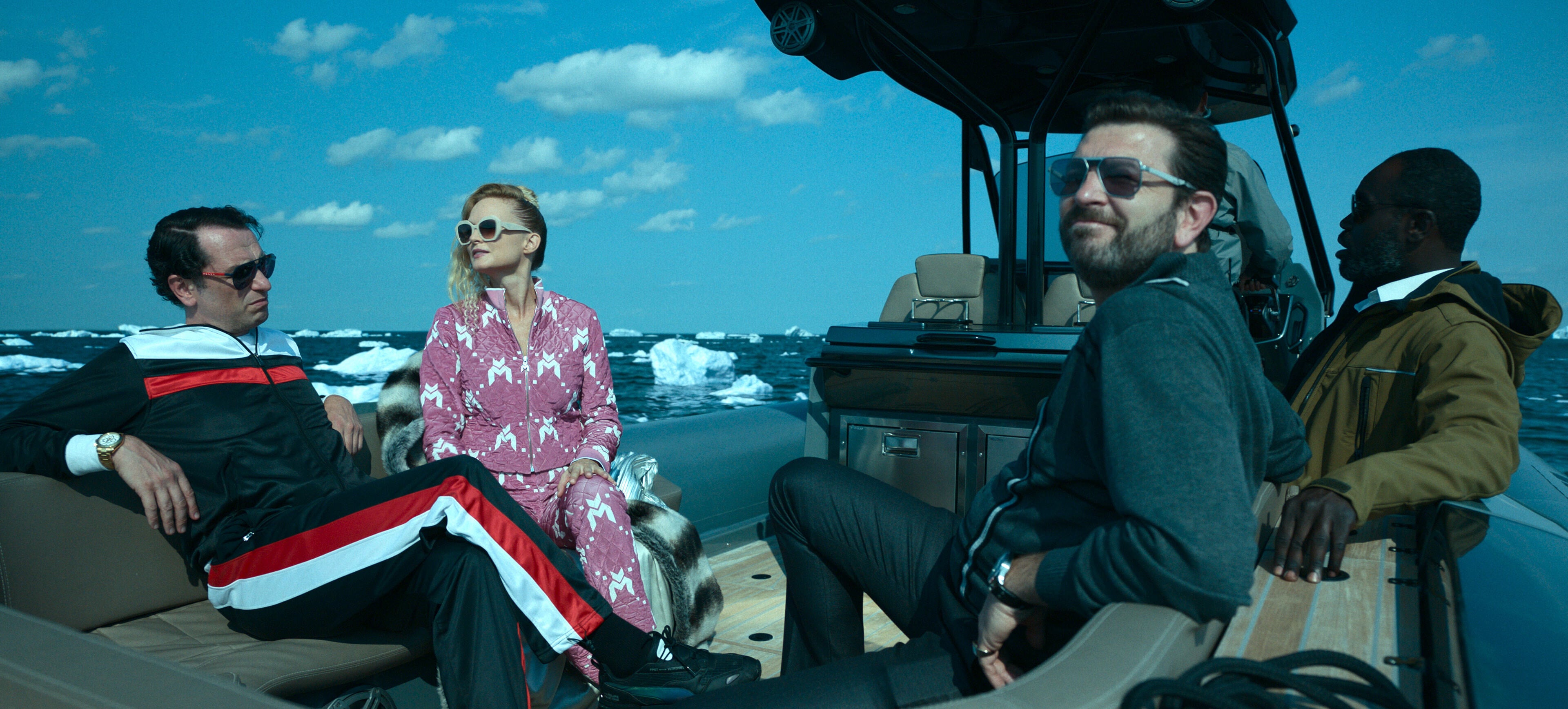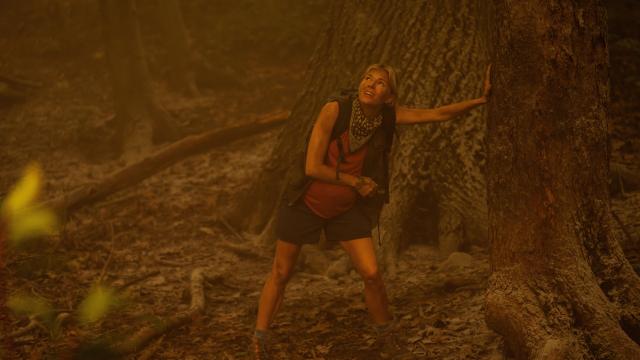There are several moments in the first two episodes of the new Apple TV+ series Extrapolations, which is intended to be a star-studded and terrifyingly realistic look into our potential climate future, that made me laugh out loud when I know I wasn’t supposed to.
At the end of the first episode, for instance (there are spoilers throughout this review, by the way), a self-interested developer looking to profit off Arctic warming, played by Matthew Rhys, is literally killed by a walrus. Incredibly, this is portrayed somberly, as an overwrought metaphor for Earth and nature taking revenge, and that made me, frankly, lose it. I cracked up, too, when I realised that decorated thespian Meryl Streep’s main role in the show is voicing — wait for it — a whale. Given the show’s realistically grim portrayal of our climate future, something I write about every day and deeply care about people understanding, I wasn’t expecting to laugh so much.
Extrapolations, which hops forward sometimes decades in time with each episode to portray the worsening impacts of climate change, is infused with a strange kind of self-righteous exposition about the climate crisis, full of lines like “The world made you sick, because we made the world sick” and “They say there will be three meters of sea level rise by the end of the century.” Creator Scott Z. Burns, who also wrote 2011’s prescient Contagion and produced 2006’s An Inconvenient Truth, told the New York Times that he consulted with Elizabeth Kolbert and Bill McKibben for this effort. Burns, however, dropped the ball here on making a show that both informs and entertains. The climate science portrayed in Extrapolations is realistic, sure, but what isn’t is how these characters talk.
Many of Extrapolations’s characters vacillate wildly between two extremes, acting as either somber mouthpieces for climate alarm or cartoonish villains profiting off the crisis. They are also, overwhelmingly, very wealthy or upper-middle-class, as well as politically connected (the daughter of a rich developer taking advantage of sea level rise in Miami; a negotiator at a UN climate meeting; a brilliant scientist opposed to geoengineering who also happens to own a private yacht and has connections within the U.S. government). It takes five whole episodes for Extrapolations to actually focus on someone living in the Global South, which feels like a pretty glaring oversight for a show that purports to base itself in climate reality. (Another moment that made me laugh: Sienna Miller’s scientist shows up to work in her lab in what looks like an incredibly expensive linen outfit, with flowing wide-legged crop pants, elegant ballet flats, and an off-the-shoulder white top. I don’t know of any scientists who actually go to work in ‘fits like that, let alone have the cash to blow on Eileen Fisher-focused wardrobes, but maybe shit is different in the future.)
At the end of the day, Extrapolations never manages to feel like it’s about people, or the planet, even — the vibe is so constantly moralizing it’s impossible to forget we’re watching a TV Show Where We’re Supposed To Learn And Pay Attention. I had the same issue with the 2021 blockbuster Netflix movie Don’t Look Up, which at least recognised the inherent comedy in our world careening toward disaster while the powers that be do absolutely nothing to stop it. When I think about my favourite TV shows and movies that handle or mention climate change, they do the opposite: the story is centered on the characters first, issues second.

Take First Reformed, which effectively conveys the despair that a lot of us feel at this current moment about the fate of our planet. Or Beasts of the Southern Wild, which quietly amplifies the dangerous beauty of a changing world. WALL-E — yes, it’s a climate change movie — creates a love story for the ages from humanity’s (literal) trash. If you want media about the futuristic excesses of capitalism, Sorry To Bother You takes the viewer on a wild rollercoaster ride through a world where billionaires are truly let off the leash; meanwhile, Children of Men, which is set in 2027 — uncomfortably close to the present — is a harrowing look at an apocalyptic near-future through one man’s journey to protect an expectant mother. And UK miniseries Years and Years, which aired in 2019 and portrays one family’s journey through 15 years of life-changing (and uncomfortably familiar) future events, manages to succeed where Extrapolations struggles: by making you care about the characters and their little dramas, even as the world is shifting around them.
All of these movies and shows focus not on the lives of politicians, billionaires, or wealthy scientists spewing facts like they’re the human embodiment of an action campaign, but rather normal people (or robots) attempting to navigate the new environment they find themselves in — not resigned to the fate of the world, exactly, but making the best of what’s in front of them. The kick in the guts for us, the viewer, comes from recognising exactly how different that world looks from ours and how close we could be coming to making it into a reality.
There are moments in Extrapolations that work well and show the missed opportunity of this star-studded affair. I really liked a scene in the third episode where an arguing family has to put on their rain boots before going to their flooded synagogue, perhaps because it was blessedly free of overwrought exposition about science. I also don’t think it’s an accident that the fifth episode, which follows a man hired to drive mysterious cargo through a smog-choked future Mumbai, is one of the best of the show. The series gets a little better toward the end, and some of the scenarios it portrays are interesting. But it never quite recovers from the initial preachiness — or that dang walrus attack.
